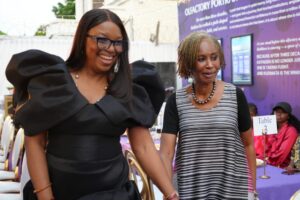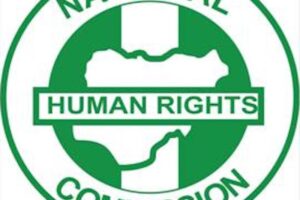
Kenyan politician Cleophas Malala didn’t accuse TV station and journalist of being ‘propaganda tools’ for president
IN SHORT: Two graphics circulating online falsely quote Cleophas Malala, the interim deputy leader of Kenya’s Democracy for Citizens party, as calling Citizen TV and one of its journalists “propaganda tools” for the president. However, the claim is fabricated.
On 26 August 2025, Rigathi Gachagua, Kenya’s former deputy president and leader of the Democracy for the Citizens (DCP) party, had an interview with Citizen TV in which he discussed politics.
Follow us on WhatsApp | LinkedIn for the latest headlines
A day after the interview, two graphics attributing controversial remarks to Cleophas Malala, the party’s interim deputy leader, went viral. They quoted him as saying the TV station and the interviewing journalist were “propaganda tools” for president William Ruto.
The graphics read:
I can now declare without fear that Citizen TV and Yvonne Okwara have reduced themselves to propaganda tools for Ruto. That so-called interview with Gachagua was not journalism – it was a scripted performance, carefully staged to paint him as a tribalist. Okwara was simply reciting lines drafted at State House, not asking questions as a journalist. From this day forward, we shall resist and expose Citizen TV for what it truly is – a political megaphone for Ruto’s agenda. As for me, I will never set foot on Citizen TV again.
Yvonne Okwara is a news anchor for Citizen TV, one of the country’s most popular television stations. In Kenya, it is common for female journalists to face online harassment, particularly when reporting on politically sensitive topics or interviewing prominent politicians. Media houses in the country have also previously been accused of bias.
Gachagua served as Kenya’s deputy president from 2022 until his impeachment in October 2024, following a fallout with Ruto. The president and his allies accused Gachagua of corruption, inciting ethnic divisions and undermining the government.
Since his impeachment, he has been rallying opposition leaders in a bid to challenge Ruto in the 2027 general election.
The former deputy president belongs to the Kikuyu, Kenya’s largest ethnic group. He has been positioning himself as the de facto leader of the Mount Kenya region, which refers to areas in central Kenya traditionally inhabited by the Kikuyu, Embu and Meru communities.
Due to his focus on Mount Kenya politics, critics have labelled him a tribalist. In Kenya, tribalism has contributed to deadly ethnic clashes, particularly during election periods. As a result, there have been efforts to curb ethnically driven politics in the country.
Sign up for free AllAfrica Newsletters
Get the latest in African news delivered straight to your inbox
Success!
Almost finished…
We need to confirm your email address.
To complete the process, please follow the instructions in the email we just sent you.
Error!
There was a problem processing your submission. Please try again later.
The graphics, dated 20 August 2025, feature the logos of two Facebook pages – 7 News Global and Channel 7 News – which frequently post similar content. Other Facebook accounts posted the quote without the graphics.
But did Malala make such remarks? We looked into them.
False claim
Africa Check found that the graphics originated from the two Facebook pages – 7 News Global and Channel 7 News – which have previously posted fabricated graphics falsely quoting famous people in the country. This suggests that they may also be fabricated.
If Malala had made such comments, they would have attracted significant attention from the local media. However, Africa Check found no reports of this specific claim in any reputable news sources.
On 27 August, Malala posted one of the graphics on his verified Facebook page with the word “FAKE” stamped across it.
“Ignore the fake news. We are focused on objectivity and facts,” he captioned it.
Posts claiming Malala made the comments attributed to him should be ignored.



